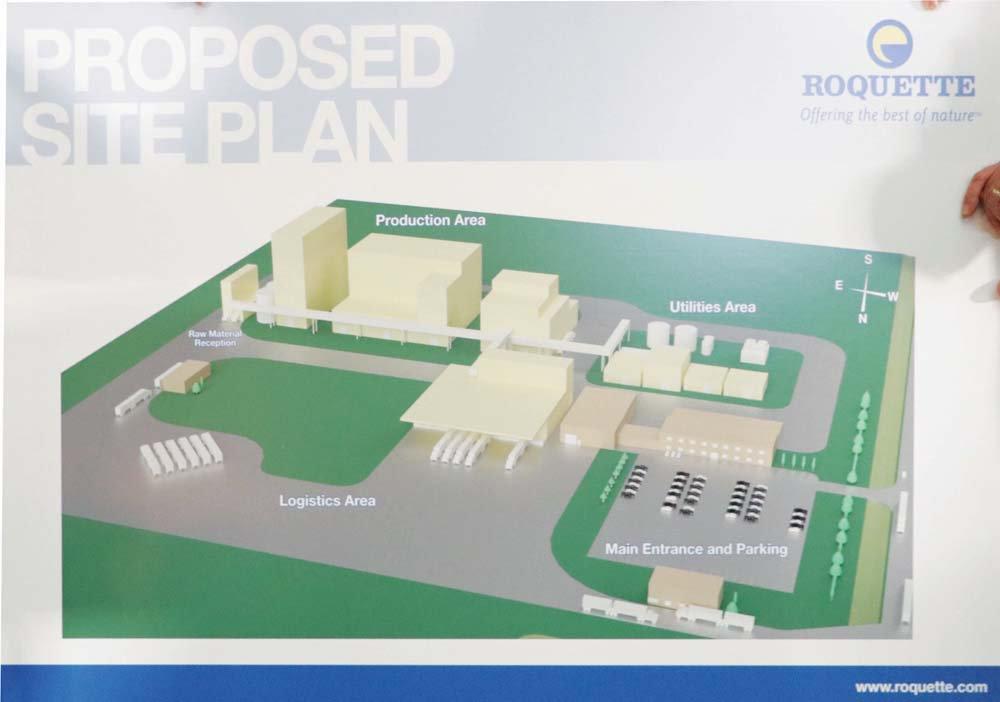Protein supercluster aims to transform food processing in Western Canada
- Posted:
- Category:
- PIC in the News
The region can be a world powerhouse in value-added processing, says head of Protein Industries Canada

Protein Industries Canada has a plan to kickstart the growth of the plant-based protein sector in Western Canada over the next four years, says its CEO.
“From a processing perspective, this is a growing industry in Canada — we’ve got 7,000 food processors,” Bill Greuel told attendees at the recent Bridge2Food Plant-Based Food Summit.
But the processing sector is just starting to take off in Western Canada, he said.
“We’re just on the cusp of transitioning out of what we do today, which is for the most part, shipping our raw commodities to value-added processing for the food manufacturing sector,” he said. “It’s going to take a lot of investment. It’s going to take some time, but I have no doubt that we will emerge as a leader in food processing and ingredient supplies.”
The federal government is giving $153 million to Greuel’s organization, a so-called ‘supercluster.’ The goal is to create a concentration of plant-processing industries akin to an ag version of Silicon Valley. With matching industry funds, Saskatoon-headquartered Protein Industries Canada expects to see $300 million invested in value-added plant-based protein processing and market development.
About 30 per cent of crops grown in Alberta, Saskatchewan and Manitoba are high-protein crops, said Greuel.
“At the end of the day, that’s 14 million tonnes of plant-based protein,” he said, noting Canada is one of five jurisdictions in the world that is a net exporter of food.
He pointed to canola, saying if there were varieties with more protein and less fibre, the crop sector could expand sales into aquaculture, pet food and swine production. Value-added processing of peas, lentils and chickpeas also offer rich possibilities — and would provide a more lucrative market than exporting raw production. (The Prairies export 6.5 million tonnes of pulses annually.)
Western Canada’s land base, knowledgeable producers and good productivity will allow it to grow at a range and scale that few other regions can match, said Greuel.
“The ability to scale up new crops over a short period of time — this is something that we can do in Western Canada that few other jurisdictions can do globally,” he said.
There are also promising opportunities for crops such as flax, camelina and oats.
In addition to the ability to produce large volumes of high-quality crops, Western Canada has good infrastructure when it comes to research and development, and a good international reputation, he said.
“Canada is a trade-friendly nation,” said Greuel. “We export 95 per cent of what we produce and that won’t change if we’re part of the value-added sector.
“Our role is to help position Canada as a global leader in plant-based food, feed and plant-based co-products. We want to contribute to Canada’s economic growth. We want to act as a catalyst to support innovation and collaboration and we have a long-term goal to transform Canada’s agriculture and food processing sectors from where we are today to what we can become.”
Breeding new varieties with the right genetics for both protein content and quality will be key, he added.
“For instance, we’ll be considering investments in decreasing fibre content, and increasing fibre concentration in canola. We’ll be considering investment around increasing protein content in yellow peas and investments at the end of the value chain that make processing more efficient.”
Western Canada has historically underinvested in processing technology but that may soon start to change.
Protein Industries Canada is currently in the midst of its first call for proposals — with $40 million in funding available. (Successful bidders will have to at least match any money they receive.) A second call for proposals will take place this fall.
“Technology priorities will be the majority of investments that we want to make,” said Greuel. “This will be 80 to 85 per cent of the investments that we want to make.”
His organization also wants to help small- and medium-size enterprises grow, he added.
“We want to make sure this is inclusive growth. We’re hoping to see how we ensure that First Nations are benefiting from the investments that we’re making.”
It will also be working with post-secondary institutions to make sure that the next level of graduates will be able to take advantage of opportunities in the plant-based protein sector. Protein Industries Canada will also advocate for regulatory changes that allow companies with innovative ideas to act on them quickly.
“We want a regulatory environment aligned with advancements in innovation,” said Greuel. “We’re really working to create a long-term sustainable change in the industry.”
But change won’t happen overnight, he emphasized.
“Our work will not be done in four years. I don’t think our work at Protein Industries Canada will be transformational in four years. We’re taking the first steps to grow this industry in Western Canada.”
Written by Alexis Kienlen - Reporter for the Alberta Farmer Express
https://www.albertafarmexpress.ca/2019/06/24/protein-supercluster-aims-to-transform-food-processing-in-western-canada/
